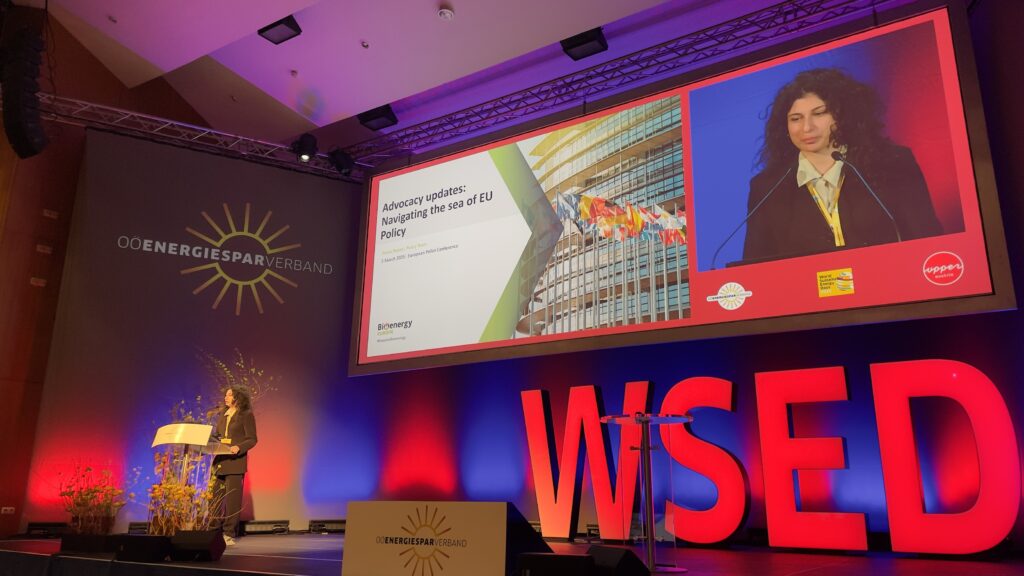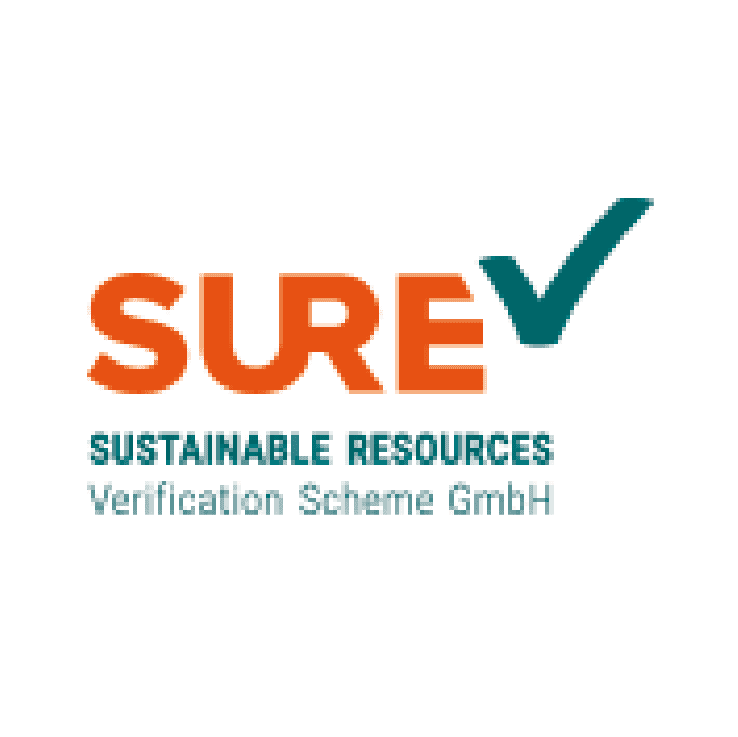
The European Pellet Conference in Wels, Austria, remains one of the most important gatherings for the global pellet community. With over 450 participants each year, the event brings together producers, traders, and policymakers to discuss the latest market trends and regulatory developments. This year’s edition, held on March 5, 2025, focused on the evolving role of pellets in Europe’s energy transition, particularly in the context of new EU policies and sustainability requirements.
Bioenergy Europe’s Advocacy Team actively contributed to the discussions, with Policy Assistant Ileana Repaci speaking at the Pellet Policy Session: Pellets: Competitive and Climate-Neutral! Her presentation provided an overview of four key policy files shaping the sector: the Renewable Energy Directive III (REDIII), the Green Claims Directive, the EU Deforestation Regulation (EUDR), and the Ecodesign for Solid Fuel Boilers (SFBs) and Solid Fuel Local Space Heaters (LSHs). REDIII remains a key focus for the sector. It updates renewable energy targets and strengthens sustainability criteria, introducing lower exemption thresholds, stricter sourcing requirements, and reinforced forest management rules. New provisions to be defined at the national level include the implementation of cascading use principles and the definition of industrial-grade roundwood.
On the Green Claims Directive, the presentation clarified what sustainability claims will be allowed in the pellet market. Given the increasing importance of clear and verifiable environmental claims, understanding these proposed rules is crucial for businesses. The discussion also addressed the EUDR, with a particular focus on upcoming implementation challenges. The expected publication of the risk classification in Member States this summer will clarify key aspects. However, geolocation requirements for secondary residues and administrative burdens for operators classified under the low-risk category remain challenging.
Lastly, the session explored the Ecodesign Regulation and its upcoming revisions for SFBs and SFLSHs. With stricter energy efficiency and emission requirements on the horizon, manufacturers and users of pellet appliances must prepare for regulatory changes in the next EU political cycle. However, the discussion on these files remains open, as the consultation forum scheduled for February was postponed until further notice. In this context, Bioenergy Europe continues to support its members, providing a forum for discussion, strategical insights and analysis and coordinating advocacy actions.
The conference was also an opportunity to visit Austria’s largest biomass gasification plant in Perg and observe the process of converting wood chips into energy. Developed by Syncraft together with Nawaro Energie, the plant was opened in 2023. It uses pyrolysis, gas cleaning, and gas engine to generate electricity and heat. The thermal energy is used to supply the base load of the local heating network, while the electrical energy is fed into the local electricity network to supply around 2000 households.
As the policy landscape continues to evolve, staying informed and engaged is crucial. Bioenergy Europe supports members in navigating these complex regulatory developments and ensuring their voices are heard at the EU level.





